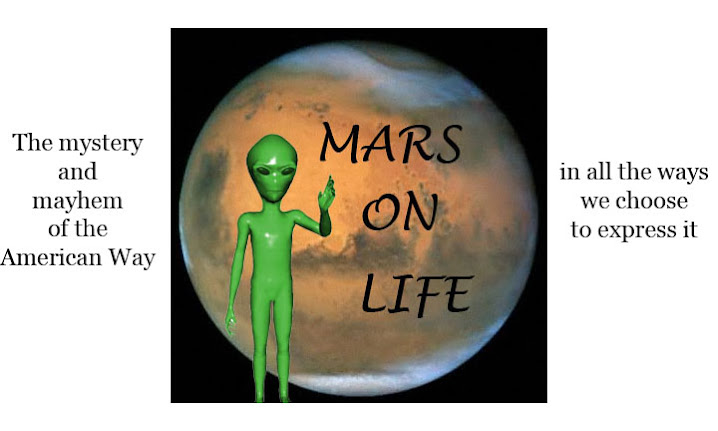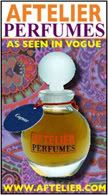
Two months after America celebrated its bicentennial, a new television show debuted on ABC. America would soon celebrate this show as "Jiggle TV," a form of entertainment not marked by its theatrical assets. The show was Charlie's Angels, a female detective series that made actress Farrah Fawcett into a seventies supernova.
Fawcett wasn't unknown to America when Charlie's Angels debuted. By the time the first episode aired, Fawcett-Majors' (still married to the actor Lee Majors) iconic poster, showing off her teeth, hair, and erect nipple had become one of the 1970s bestselling pop culture items.
Some say the 1980s marked the end of America as we knew it, but the truth is that the end of the 1970s--the Super Seventies--was the real terminus. The 1970s were a silly era, full of junk food and just plain junk and the last of the great Detroit muscle cars. It was an era of cheap and cheerful invention, not just limited to the hairstyle that Fawcett popularized and which was erroneously adopted by thousands, including some men in rock bands best forgotten. The 1970s gave us Pop (and Pet) Rocks and The Midnight Special, Ron Popeil and Deney Terio. Worse yet, we lived happily with a narrow worldview in the age that was the beginning of our international undoing.
Television was responsible for a lot of the tossaway inanity, and yet opposites existed peaceably: For every clever Carol Burnett Show there was a brainless Dukes of Hazzard. In hindsight, a viewer's options were severely limited. You had your three majors, PBS, and a couple fuzzy UHFs that refused to be tuned by the rabbit ears. Despite this lack of 24-hour, complex programming (and porn), people watched TV more then than they do today. The reason for this, of course, is the personal computer, which at the end of the 20th century turned into a warm and welcoming personal burrow. In the 1970s, you either watched TV with the family or you shut yourself in your room with Led Zeppelin III and a Thai stick.
Those of us with less sappy mindsets will recall the 1970s as a time of embarrassment and polyester.
Fawcett was the ultimate All-American blonde and she began her career advertising those products so iconic they were almost patriotic: Ultra-Brite, Wella Balsam, and Noxzema. Take a look at Fawcett lathering up Joe Namath's face in the shaving-cream commercial. Broadway Joe's shit-eating grin and sloping, dopey eyes make him look as if he'd have been right at home as a Sweathog in Welcome Back, Kotter, giving Vinnie Barbarino a run for his money in the doofus department. Fawcett had that effect on men general; it's a safe bet that most of those 12 million posters were sold to satisfy the urgent libidos and prurient minds of young male America.
Females were not immune either, hair type be damned. Within weeks of the poster's appearance, hairstylists had learned not to attempt to dissuade those patrons who were either too old or whose hair was too straight for Fawcett's leonine style. Open any yearbook of the Class of '76 and you will see the Farrah Do, as it was known, on most of the student council, with the exception of the sour-looking girl whose favorite pastime was breeding beef cattle. That girl had a sensible Dorothy Hamill haircut, the Dorothy Hamill being the decade's second most popular coiffure. The Hamill was functional, though, and there may have been grounds to claim that the Hamill was born of a fervent need to unsex. Hamill you could take home to meet Mother, yet the similarly sporty Fawcett was priapic fantasy.
Guided by super-manager Jay Bernstein and superstar husband Lee Majors, Fawcett filmed one year of Charlie's Angels and then quit. Angels had no redemptive qualities or serious ethical questions to tackle (at the time, this was strictly the purview of dull old PBS) and Fawcett romped through it unruffled. She then lagged as a movie star and had a small and surprising success in the off-Broadway play Extremities. She appeared with her hair straightened, which in Fawcett's case looked like the mark of an emerging serious actress. Fawcett was a slight woman who, though at least partially responsible for the "Jiggle TV" term, was seriously out-jiggled by another Bernstein client, Suzanne Somers. Nothing again would resonate with the public the way the poster and the series had; had Fawcett replaced Streep in Kramer vs. Kramer we'd never have forgiven her for betraying her earlier, sexier self, born of Texas but decisively a product of California.
The truth about Fawcett was that she and the Super Seventies had a happy and serendipitous alliance. Had she been born a quarter-century earlier and hit Hollywood during the era of Betty Grable and Rita Hayworth, we might never have made her acquaintance. Fawcett looked like the Seventies, perhaps more so than the Seventies looked like Fawcett; she had that slim body type and that breezy, unfettered optimism that went along with the feeling that we were in our greatest era of achievement yet. We had, after all, the Chop-O-Matic. How wrong that was. Our corn-fed youth became sick and fat on sugar and grew bigger, taller, and indolent; we hurried to buy the first of the Japanese cars and crowed about their superior mileage, snickering at our Ford LTD-driving neighbor. Technology changed things, and suddenly we became sluggish and stupid, the international laggarts. Our entertainments changed and we popularized plastic breasts to the point that someone like Fawcett, who relied upon God-given sex appeal alone, would have been shown the gate (or at least the door of the top plastic surgeon in town).
We owe Fawcett a debt of thanks for her beautiful impact on that last naive and foolish era. We'd grow hipper and we'd mature out of that goofy phase where Fawcett's blonde waves were like that native waving wheat, golden in the sunset, on our domestically televised plains. We made Friends, and even in their own hysteria these friends were not like Fawcett at all. Somehow, we'd lost what made stars special in the first place, that remove between them out there in the Hollywood galaxy and us here at home in our suburban Barcaloungers. We had become one and from there on in only our salaries were different. We sucked on the same straws, ate the same French fries. This was the new nation, the one in which the pauper dines with the king and goes home ruing the hell out of genetics. In 1976, we thanked our lucky stars that strokes of good genetic fortune created Fawcett and led her onto the intimacies of our small screens. Wasn't it a great time to be an American television viewer? Wasn't it a great and mindless time overall? Have a nice day, have a Billy beer, tie a yellow ribbon, goodbye American woman, goodbye All-American girl.
Friday, June 26, 2009
Goodbye, All-American Girl
Labels:
Farrah Fawcett death,
Super Seventies
Subscribe to:
Post Comments (Atom)









3 comments:
Lovely tribute Suzanna!
She was an icon. Great post!
These celebrities are passing away at their lowest lows, so sad.
Post a Comment